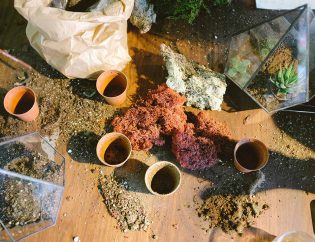
As Michigan gardeners choose plants suited to our climate and prioritize eco-friendly practices, maintenance is key to success.
Practical tips on organization and upkeep can help avoid common mistakes. For those seeking guidance, new resources are available through a first-ever partnership between the Michigan Department of Natural Resources, local water authorities, and Consumers Energy. These free tools, including online guides and workshops, aim to help gardeners create beautiful, sustainable landscapes for the long term.
Many Michigan homeowners have embraced sustainable landscaping, replacing water-hungry lawns with native plants and pollinator-friendly gardens over the past decade, said Douglas Kent, a landscaping expert. However, maintaining these landscapes can be challenging, leading to neglected or struggling yards.
Upkeep tips can help
The resources cover the essentials of managing a Michigan landscape: efficient irrigation; soil health and fertilization needs for hundreds of native plants; natural strategies for weed and pest control; and managing stormwater with rain gardens or barrels.
These guides answer key questions: How often should you water? How can you manage pests naturally? How do you handle runoff and erosion? Which native grasses, perennials, shrubs, and trees thrive in Michigan, and how do you care for them properly?
“Creating and maintaining landscapes takes a team effort: homeowners, landscapers, contractors, and specialists all play a role. But it’s the people in our gardens—those getting their hands dirty planting natives, pulling invasives, and braving Michigan’s weather—who make our spaces thrive,” Kent said.
Kent urges gardeners to think beyond plant choices and watering schedules, embracing the idea that caring for Michigan’s landscapes directly impacts their health, biodiversity, and the well-being of our communities.












